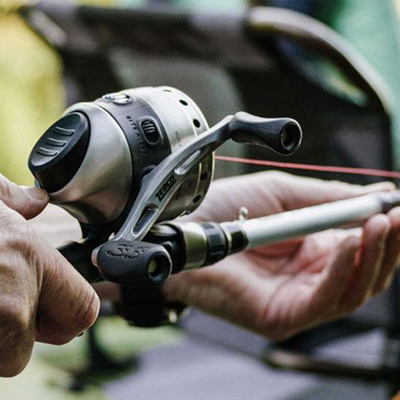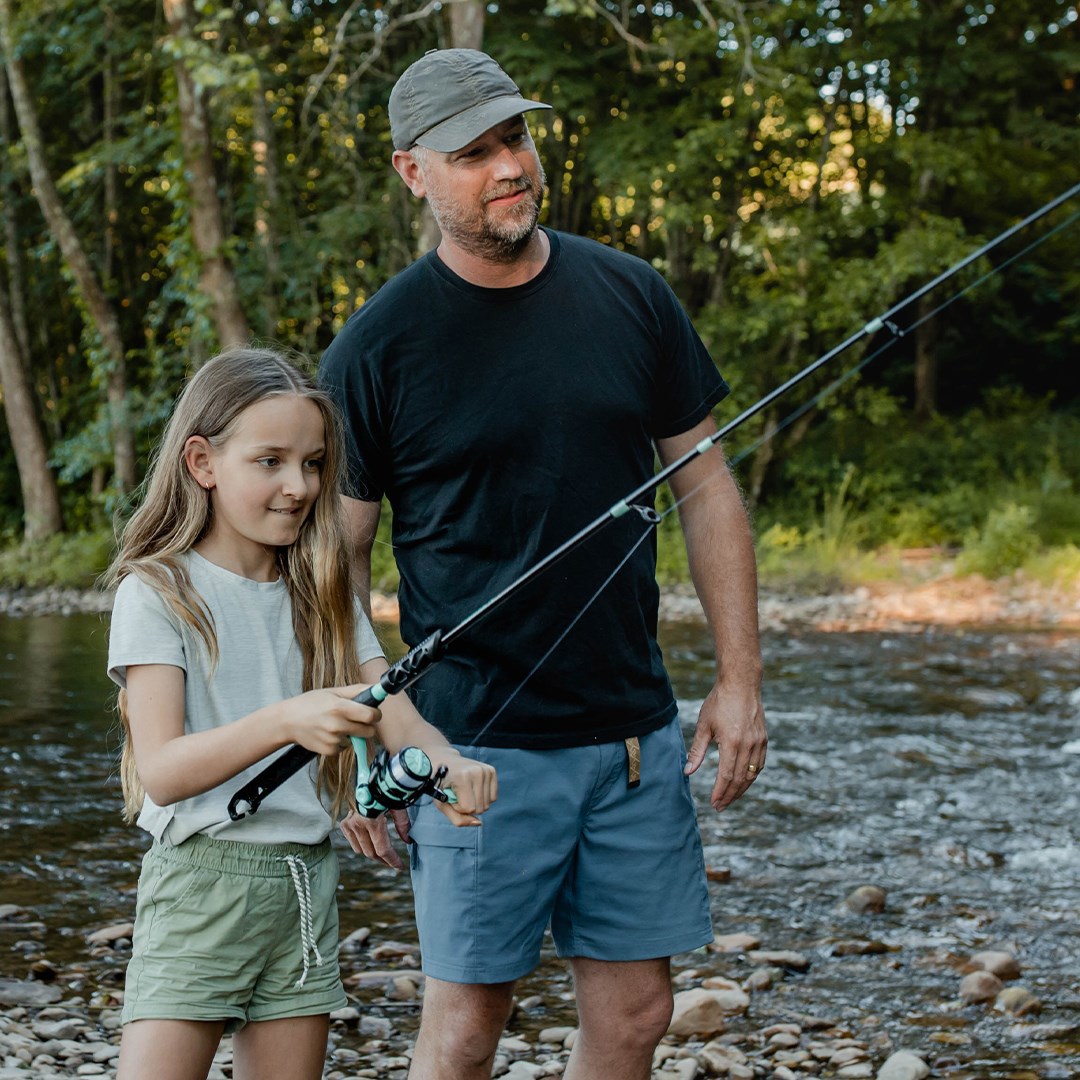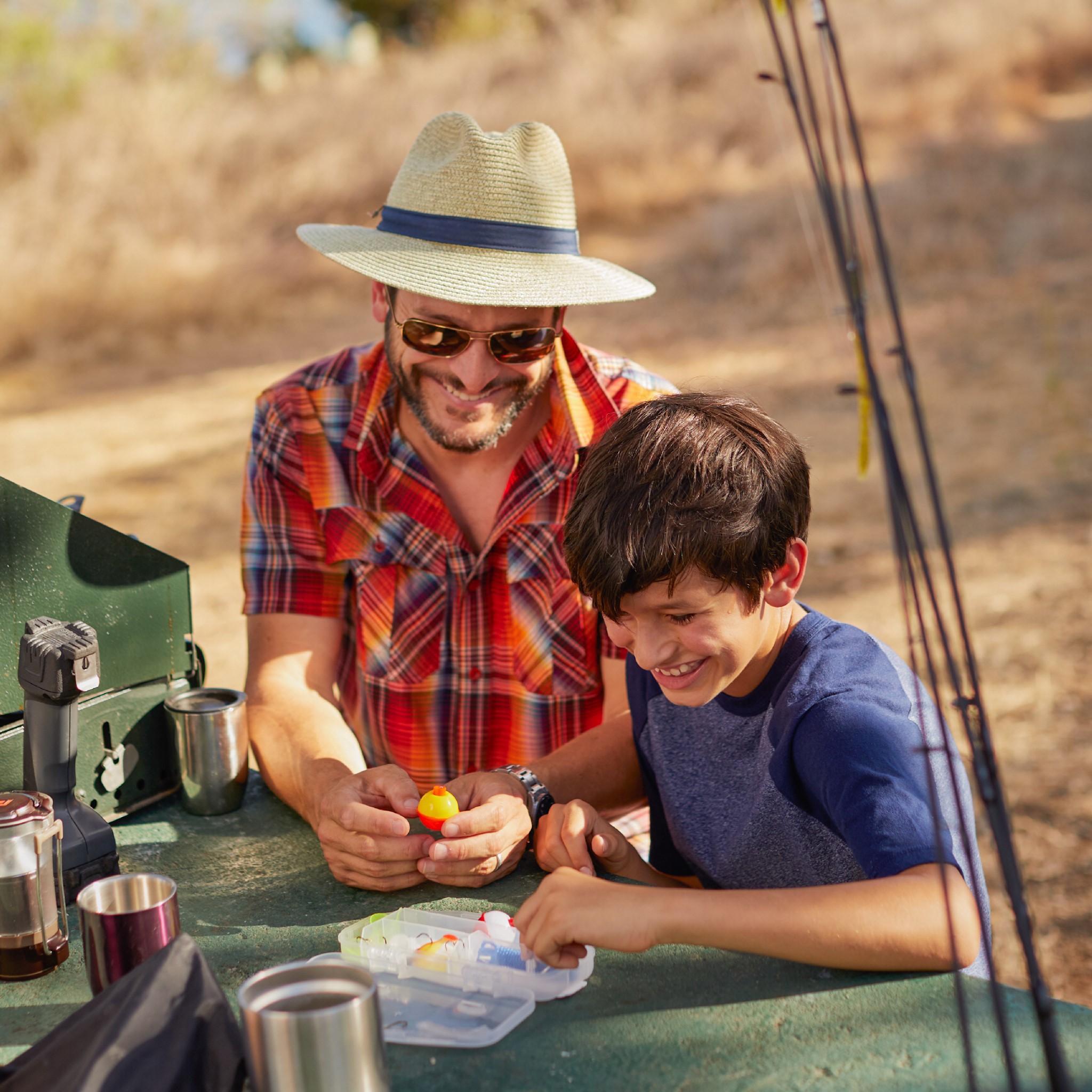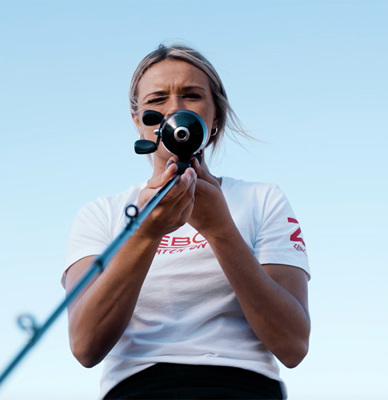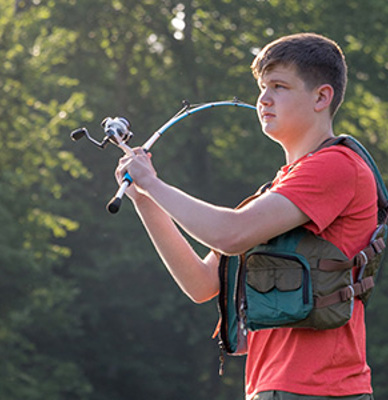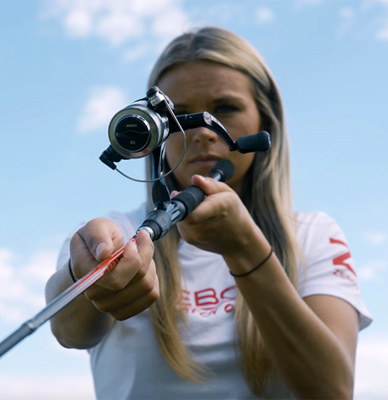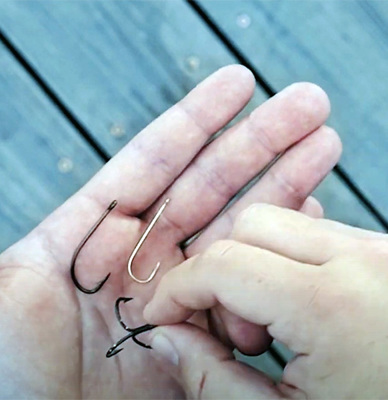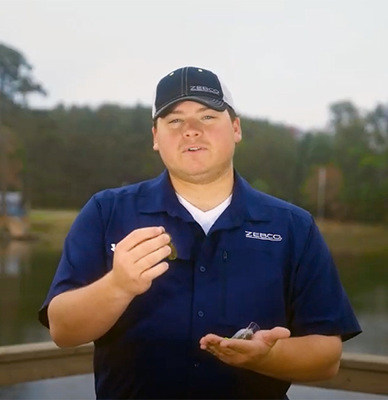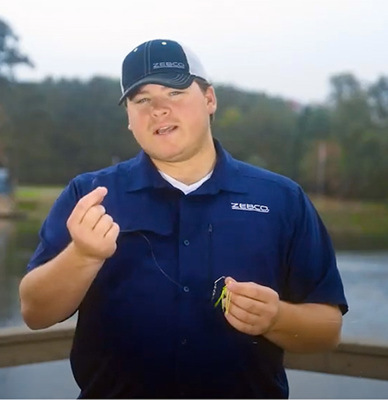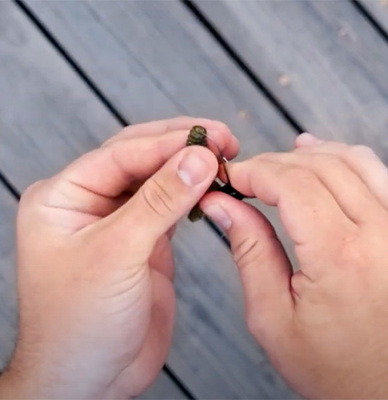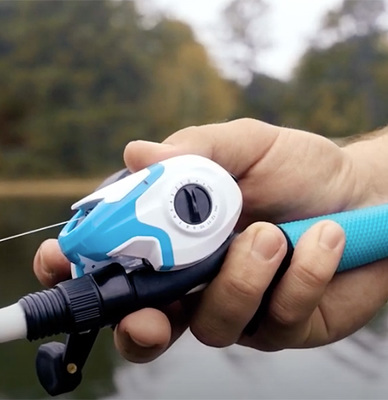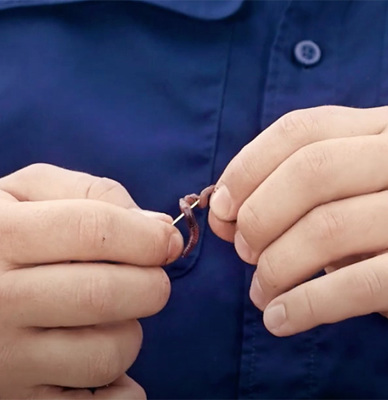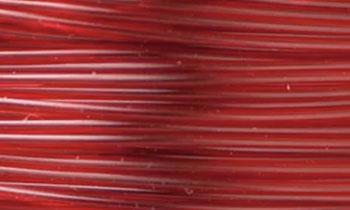
Monofilament fishing line.
The popular choice. A decent monofilament line (mono for short) works well for most anglers and many Zebco reels come pre-spooled with our own Cajun® brand mono line. Made of a single fiber of nylon orotherman-made polymer. A good line weight to start with is 6- to 12-pound test. “Pound test” refers to the weight required to break the line. For example, a 10-pound test line is stronger than a 4-pound test line. The trick is to match the pound test to the size of your rod and reel, the kind of bait or lure you’re using, and the fish you want to catch.
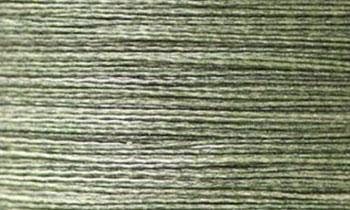
Braided fishing line.
Tougher and thinner. Today’s advanced braided lines (or super lines) have come a long way from early Dacron fishing lines. Using the latest fibers, braided line is incredibly strong and abrasion-resistant yet is smaller in diameter than monoline. It’s a good choice when fishing in thick weeds, submerged timber or rocky structure. It also has very little stretch so it’s incredibly sensitive for detecting light bites and offers quick hook-sets. The only drawbacks are it doesn’t sink as well as other lines so it can take longer for your lure to get to the desired depth. And it’s harder to cut when tying knots.
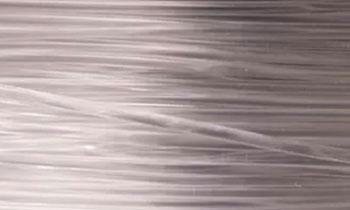
Fluorocarbon fishing line.
Less stretch, less visible. The latest trend in lines over the last decade has been the rise of fluorocarbon line (fluoro for short). While more expensive, serious anglers like it because, like braid, it has a little stretch and is fairly tough. It also is less visible underwater so it’s often used in clear water situations to keep from spooking the fish. There are also an array of co-polymer lines that try to marry fluoro and other polymers together for the best overall performance.
SHOP LINE & ACCESSORIES
If you’re serious about fishing, the best thing to do is try different types of lines to see what works best for you and the way you like to fish.
Environmental Alert: To protect wildlife and the environment, always take any discarded line with you when you leave. Discarded line can snag and harm wildlife and kill fish, turtles, frogs, birds and small mammals.

